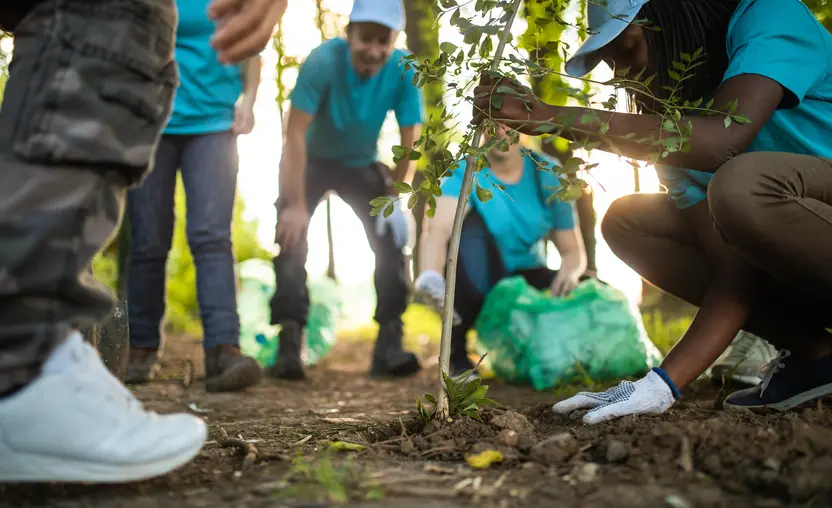Volunteering is one of the most impactful ways individuals can contribute to the nonprofit organizations they care about. The primary goal of volunteering is to help others, but it can also have an equally positive impact on volunteers, both physically and mentally.
To encourage you to get involved, we’ll discuss how to start volunteering and all the benefits that go along with it.
How do you start volunteering?
All you need to become a volunteer is motivation, compassion for others, a positive attitude, and an open mind. With these attributes in mind, start by evaluating which causes are important to you and align with your values. Then, research nonprofits to find available in-person or digital volunteer opportunities that match your skills and interests. For example, if you love dogs or cats, you could visit a local animal shelter to care for animals waiting for their new homes.Four personal benefits of volunteering
1. Explore your interests and skills
Volunteering allows you to discover new personal interests and develop skills you may not practice in your everyday life. If you have a passion for sustainability, for instance, you could volunteer to work in a community garden and learn how to grow and harvest produce as you give back. Nonprofits are always looking for volunteers eager to help their cause, and they are more than willing to educate volunteers on how to support the services they need. In the example above, the leaders at your local community garden would be happy to teach you how to garden sustainably, which you can then apply to your everyday life.2. Interact with new people
When you join a nonprofit’s volunteer team, you join a community. Especially if you become a regular volunteer or work one-on-one with beneficiaries, you’ll meet new people who impact how you see the world. Meeting new people helps you:- Broaden your worldview.
- Improve your interpersonal skills.
- Learn about different perspectives and ways of thinking.
- Strengthen compassion for others.
- Cultivate lasting relationships.
- Feel more grateful for what you have.
3. Learn about yourself
Volunteering helps you discover what you’re passionate about, what tasks give you energy, and which skills you find challenging. This self-awareness can increase your confidence in your abilities and encourage personal growth. Some people may discover that they enjoy serving meals at a homeless shelter or delivering packaged food door-to-door as it allows them to interact directly with many individuals. Others may discover they have a talent for organization and maximizing efficiency, and would prefer stocking shelves at a food pantry instead. The more you volunteer, the more opportunities you’ll have to discover new avenues of interest.4. Improve your health
Volunteering can also benefit both your mental and physical health. A recent study found that people who volunteered consistently for one month reported having improved mental health, were more satisfied with their lives, and rated their overall health as better. If you want to improve your physical health, look for more active volunteer opportunities that facilitate physical work like gardening, walking, and standing. No matter what causes you’re interested in, you can find opportunities to make an impact and improve your health at the same time.Make an impact by volunteering
When you’re ready to start volunteering, ask yourself what you’d like to accomplish or learn from the experience. Determine which of these benefits are most important to you and search for opportunities that can support both your personal goals and the causes you’re passionate about.
Ready to Get Started?




